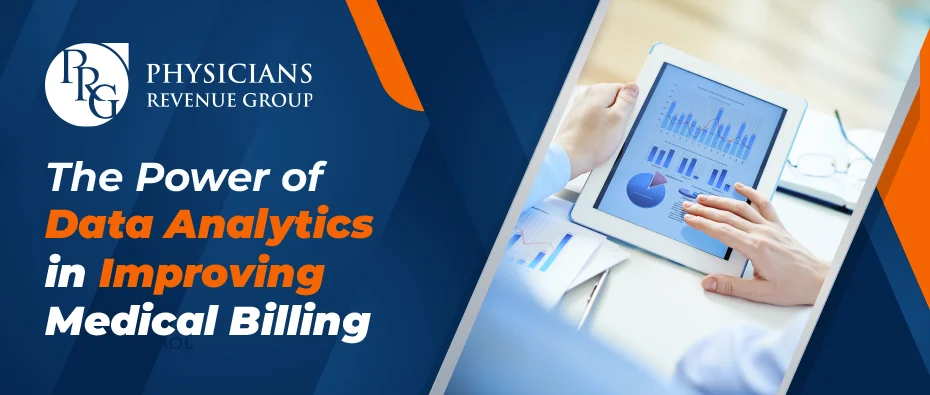
Email: info@prgmd.com | Call: +1 (630) 242-6474
Business hours: 9:00 to 5:00 | Monday to Friday
Email: info@prgmd.com | Call: +1 (630) 242-6474
Business hours: 9:00 to 5:00 | Monday to Friday

Table of Contents
ToggleThe healthcare industry in the USA is moving into a value-based era. Furthermore, healthcare data analytics is matching every step of advancement. Physicians today constantly seek to improve healthcare outcomes and care delivery while growing their practice bottom lines. To reach the pace, third-party billing providers must offer more than the bare-bones of medical billing services.
One of the best and most impactful ways to do this is by offering and sharing data that strategically helps physicians make informed decisions to grow their practices exponentially.
Data analytics is the process of leveraging technology and software tools to examine larger datasets to uncover:
Inside the context of healthcare revenue cycle management, using data analytics can also help:
The primary challenge in healthcare RCM is identifying porous areas where practice revenue is at loss. Here, predictive analytics is put to use for examining the entire revenue cycle, from patient registration to final payments. This process is where areas of revenue loss are identified owing to:
By locating and then isolating the root causes of revenue leakage, healthcare practices can then take corrective actions to improve the revenue cycle.
Healthcare billing is an integral part of RCM, and any errors or delays can have a massive impact on the cash flow. Data or predictive analysis here can analyze billing data for identification of areas that can be used to optimize billing procedures for:
Note: Data analysis can identify common reasons for claim denials and develop strategies for reducing denials.
When patients cancel their appointments at the last moment, it entails a loss of revenue, leading to inefficient workflow. Analytics models can identify the risks of patient no-shows or even late cancellations. Analytics allows a medical practice to send extra appointment reminders or offer open slots for other patients.
The analytics models assist in reducing administrative burdens and even improve clinician workflow. Furthermore, it also lowers reimbursement losses owing to empty appointments.
Analytics can offer healthcare practices invaluable insights for improving financial performance. These insights can help in making informed decision-making processes. Analytics also help identify more profitable specialties and services and develop marketing strategies for attracting more patient inflow to those identified areas.
Additionally, analytics can pinpoint areas where the costs can be reduced without affecting the quality of care.
There are many systems and tools that can be used to collect, store, share, or analyze healthcare data through many means, and these tools include:
With the digital collection of data, an increasing amount of data needs to be analyzed with every passing second.
Share:
Categories
Recently Added

What is an ABN in medical billing?

What does a Clearinghouse do During Claims Submission?

What is EOR in Medical Billing?
We Would Love to Assist You!
We treat your data confidentially and don’t share any information with a third party.